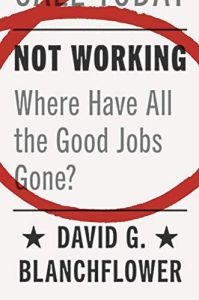Join getAbstract to access the summary!

Join getAbstract to access the summary!
David G. Blanchflower
Not Working
Where Have All the Good Jobs Gone?
Princeton UP, 2019
What's inside?
Economist David Blanchflower offers insights for recession worriers – which should include everyone.
Recommendation
In this thoughtful work, economist David Blanchflower recounts his involvement in government decisions in the period leading up to and during the Great Recession. He laments the blindness of his profession in letting the crisis happen and in exacerbating its effects. Blanchflower explores current links between economic policy and the rise of global populism and nationalism, and he discusses how leaders could avert another recession, which he sees as imminent. His fact-filled book will appeal to economists, policy analysts and recession worriers everywhere.
Summary
About the Author
British-American economist David G. Blanchflower is a professor at Dartmouth University.

















Comment on this summary